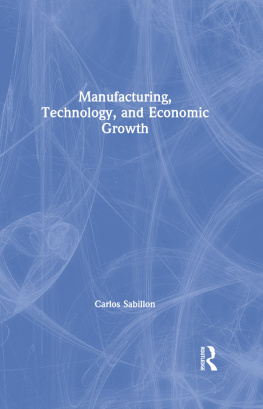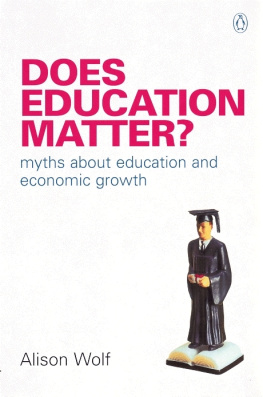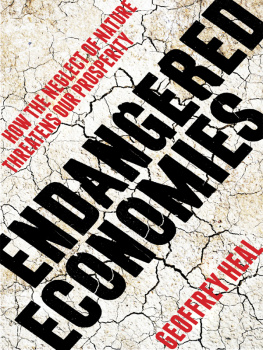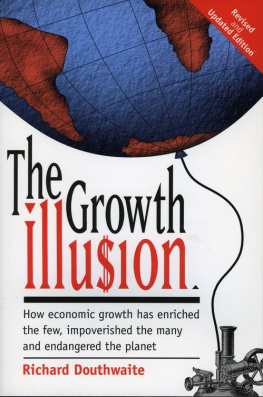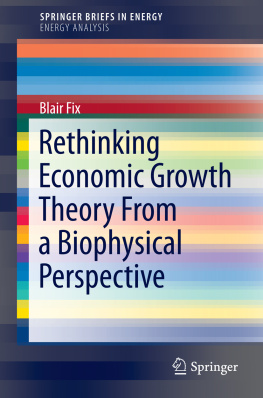

Copyright 2015 by Csar Hidalgo
Published by Basic Books,
A Member of the Perseus Books Group
All rights reserved. Printed in the United States of America. No part of this book may be reproduced in any manner whatsoever without written permission except in the case of brief quotations embodied in critical articles and reviews. For information, address Basic Books, 250 West 57th Street, New York, NY 10107.
Books published by Basic Books are available at special discounts for bulk purchases in the United States by corporations, institutions, and other organizations. For more information, please contact the Special Markets Department at the Perseus Books Group, 2300 Chestnut Street, Suite 200, Philadelphia, PA 19103, or call (800) 810-4145, ext. 5000, or e-mail .
Designed by Timm Bryson
Library of Congress Cataloging-in-Publication Data
Hidalgo, Csar A., 1979
Why information grows: the evolution of order, from atoms to economies / Cesar Hidalgo.
pages cm
Includes bibliographical references and index.
ISBN 978-0-465-03971-5 (e-book)
1. Information theory in economics. 2. New products. 3. Economic development. 4. Knowledge, Theory ofEconomic aspects. 5. Physics. I. Title.
HB133.H6253 2015
330.01154dc23
2015000882
10 9 8 7 6 5 4 3 2 1
To Iris, Anna, and Mridu
CONTENTS
The universe is made of energy, matter, and information, but information is what makes the universe interesting. Without information, the universe would be an amorphous soup. It would lack the shapes, structures, aperiodic orders, and fractal arrangements that give the universe both its beauty and its complexity.
Yet information is rare. It hides in pockets as it battles the universes perennial march to disorder: the growth of entropy. This book is about the growth of information, and about the mechanisms that allow information to battle randomness and grow. These mechanisms include the natural processes that allow information to emerge and the social and economic mechanisms that contribute to the accelerating growth of information in society. This book is about the growth of informationthe growth of physical orderthat makes our planet unique, rich, and uneven, from atoms to economies.
Much of this book will focus on our planet and our species. This is because, from a cosmic perspective, our planet is a special place. We know of many places in our universe that concentrate more matter and energy than the Earth, but not of places that concentrate more information. Neutron stars are so dense that a spoonful of them weighs more than the Empire State Building. Black holes are so massive that they twist the geometry of space. Energy is also extremely abundant in the billions of stars that populate our galaxy, but not so much in our planet. So what makes our planet special is not that it is a singularity of matter or energy, but that it is a singularity of physical order, or information. Our planet is to information what a black hole is to matter and what a star is to energy. Our planet is where information lives, grows, and hides in an otherwise mostly barren universe.
But where does information come from? Why is information concentrated in our planet, and how is the growth of information facilitated by life? What are the social and economic mechanisms that enable information to continue growing in society? How does the social accumulation of information improve our capacity to accumulate even more information? And how do the mechanisms that contribute to the growth of information contribute to the social and economic unevenness of the global economy?
In the following pages, we will learn what information is, where it comes from, and why it grows. We will learn about the natural, social, and economic mechanisms that help information rebel against entropy. We will learn about the mechanisms that help information win small battles, prevailing stoically in our universes only true war: the war between order and disorder; between entropy and information.
Ludwig was an unhappy man. Did the death of his son push him over the edge? Or was he broken down by his colleagues criticisms? Maybe he loved atoms too much?
While on summer vacation, Ludwig killed himself. Elsa, his youngest daughter, found him dangling from a rope. She refused to talk about this episode throughout her life.
Of course, the Ludwig that I am talking about is Ludwig Boltzmann. Ludwig was a successful scientist, but also an insecure man. Ludwig made important contributions to our understanding of nature. His scientific contributions, however, did not go unchallenged.
Ludwig believed in atoms at a time when many of his colleagues considered atoms to be nothing more than a convenient analogy. Their skepticism troubled him. On the one hand, he knew he was on the right track. He had shown that the empirical behavior of gases could be attributed to the collective motion of molecules, or atoms. This finding gave him indirect evidence of the existence of atoms, but no way to observe these directly.
The lack of direct evidence left Ludwig vulnerable to the critiques of his colleagues. His nemesis, the physicist turned philosopher Ernst Mach, maintained that science should focus only on relationships among directly observable quantities. Additional theoretical constructs, like Boltzmanns atoms, were not allowed.
But Ludwigs troubles were not just social. For decades he had been trying to explain the origins of physical order. His attempts, while scientifically fruitful, were also unsuccessful. Ludwigs theory predicted the opposite of what he wanted to show. His everyday experience indicated that order was increasing all around him: flowers bloomed, trees sprouted, and the rapidly industrializing society mass-produced new gadgets every day. Ludwigs theory, however, predicted that order should not grow but disappear. It explained why heat flows from hot to cold, why swirls of milk disappear in coffee, and why whispers vanish in the wind. Ludwig showed that the microstructures of the universe gnaw away order, making it ephemeral. But he understood that this was not the full story and that he was missing the mechanisms that helped information transcend.
The growth of order troubled Ludwig. It disturbed him in a way that only a scientist can understand. He knew that something was missing from his theory, but he was unable to identify what that was. At the dusk of life, Ludwig became tired of battling both people and nature. Using a rope, he decided to take matter into his own hands. What was left was a shell of atoms that began a steady but certain decay, just as his theory predicted.

In 1906 Ludwig ended his life, but not the philosophical problems that troubled him. To explain the origins of physical order, Ludwig connected phenomena occurring at different spatial scales, mainly atoms and gases.emerging at each level. In this hierarchy, transgressing boundaries was thought unnecessary. Economics did not need psychology, just as psychology did not need biology. Biology did not need chemistry, and chemistry did not need physics. Explaining gases in terms of atoms, although not as preposterous as explaining human behavior in terms of biology, was seen as a betrayal of this implicit deal. Boltzmann had sinned by trying to explain the macroscopic properties of gases in terms of the motion of atoms.
Next page

